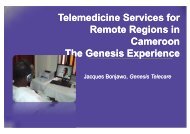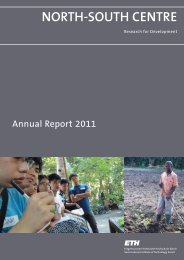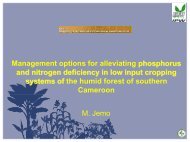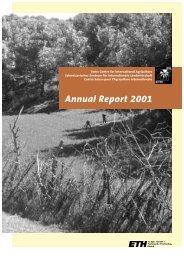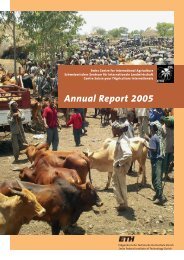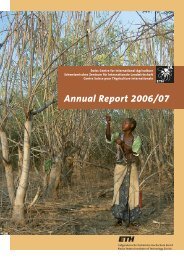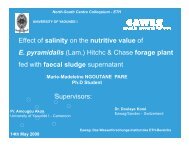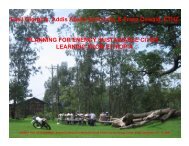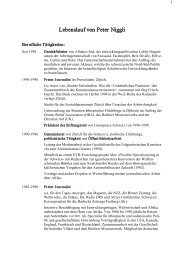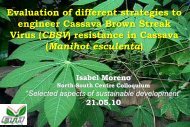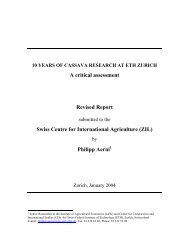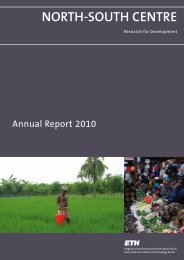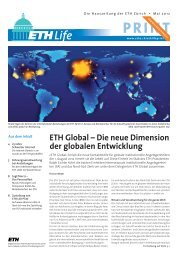NORTH-SOUTH CENTRE - ETH - North-South Centre North-South ...
NORTH-SOUTH CENTRE - ETH - North-South Centre North-South ...
NORTH-SOUTH CENTRE - ETH - North-South Centre North-South ...
Create successful ePaper yourself
Turn your PDF publications into a flip-book with our unique Google optimized e-Paper software.
makers. R4D allows for explaining that we are doing research<br />
for external users and not only for our own researchers’<br />
environment.<br />
What would you like the readers of this interview to keep<br />
in mind?<br />
Bassirou Bonfoh: If we want to emphasise the impact of<br />
R4D, we need other funding mechanisms to support this<br />
specific research – different from most of the funding mechanisms<br />
that exist today.<br />
Barbara Becker: There are two key messages. The first builds<br />
on what Isabel said earlier, that those colleagues at the <strong>ETH</strong><br />
Zurich or among our readers who have not had anything<br />
to do with R4D or problems of developing countries might<br />
get the idea that their research, on ICT for example, is<br />
also relevant when put into the development context. The<br />
second key message is that we have to develop new approaches<br />
to the award system for judging the quality of<br />
science – approaches that are more appropriate for assessing<br />
and capturing the quality of R4D.<br />
Urs Wiesmann: I fully subscribe to that. I would be happy<br />
if we were able to show with this interview that R4D is<br />
not applied research in a purely demand- or consultancydriven<br />
way, but that it is facing very large scientific challenges.<br />
These challenges call for innovation in terms of methodology,<br />
in terms of approaches, and in terms of generating<br />
outputs and outcomes. The second message is that in<br />
science we should stop thinking that globalised knowledge<br />
is automatically better than contextualised knowledge. The<br />
two have to go together and supplement each other. Only<br />
in this way can science make a meaningful contribution to<br />
society at large, to the economy, and to the environment.<br />
Isabel Guenther: In addition to everything said before,<br />
I would like to highlight that working in research in a<br />
development context is very rewarding. I do not think it is a<br />
trade-off, nor a low-tech area nor a consultancy service for<br />
development agencies and governments – it is a field with<br />
very interesting and relevant scientific questions.<br />
Fresh camel milk samples are waiting for pH measurements,<br />
Isiolo, Kenya<br />
Interview with the village head, Guruwahi, India<br />
27<br />
FOCUS<br />
Research for development



